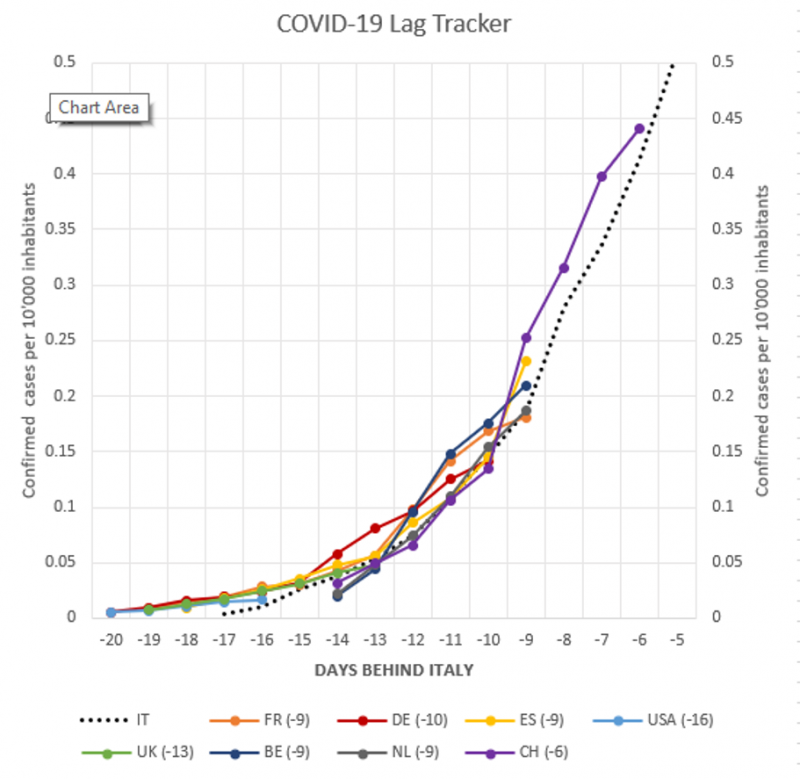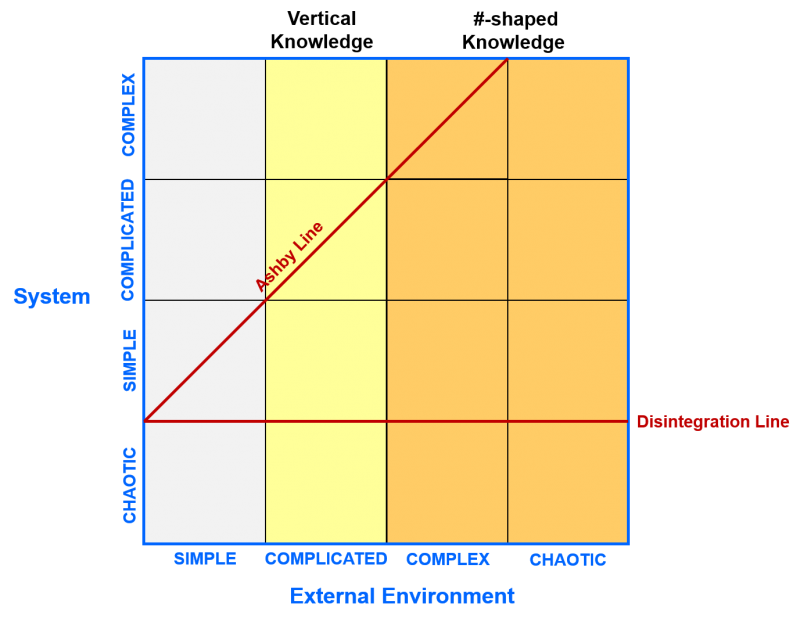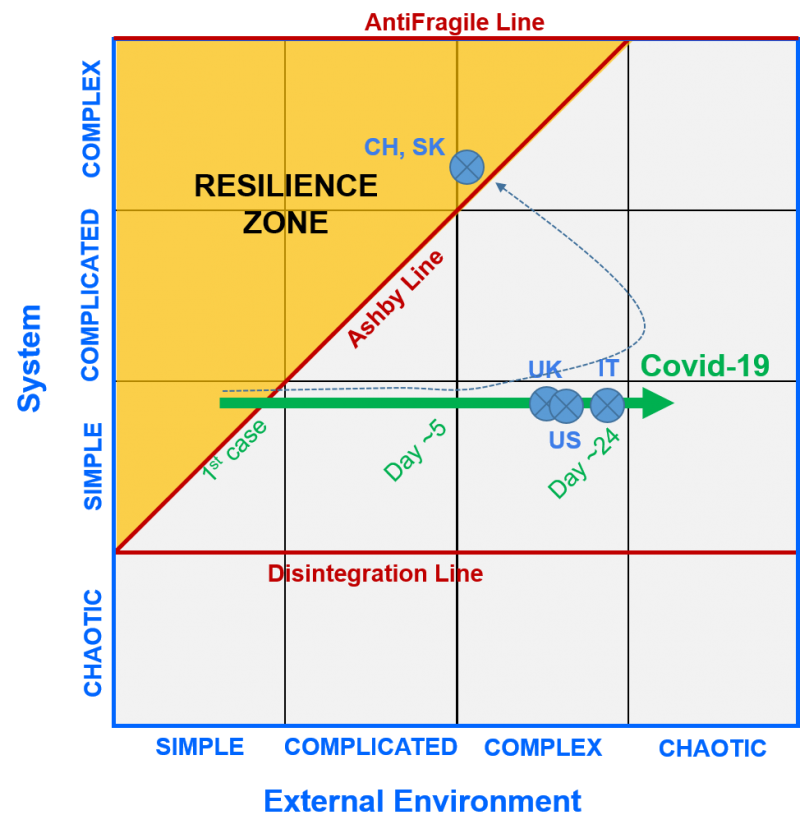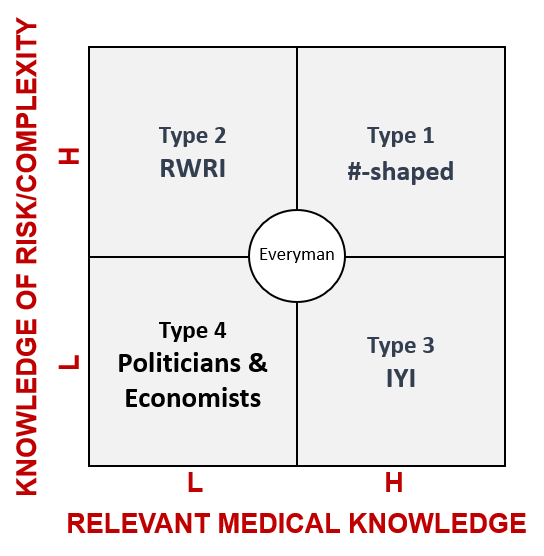
Covid-19 offers a timely reminder that experts aren’t perhaps such a bad thing afterall. In a battle between Fake News and a real virus, I know who’s side I’m on. That said, its also fair to say that we’re already receiving some pretty horrific advice from the so-called experts.
Which might sound like we’ve just come full circle again. We want experts, we don’t want experts. The problem is what kind of expert is it that we need? Classic consultants answer: it depends.
It depends on what sort of situation we find ourselves in. If it’s Complicated, then classic T-shaped vertically-educated domain experts are the people we should seek advice from. If it’s Simple, anyone that has been given the relevant recipe will do. On the other hand, if the situation is Complex, we need #-shaped experts (SI ezine, Issue 183). People that are able to combine their deep domain knowledge with a requisite level of horizontal skills. In the case of pandemics, horizontal skills in complex adaptive systems and risk management.

If you’re lucky enough to live in a part of the world that doesn’t have any cases of Covid-19, from a counter-measures perspective, you’re in Simple mode. This means that a range of simple social-distancing measures will likely keep your population safe. Most nations are now past this stage. So simple instructions (failing to take account of first principles of human behaviour) won’t work any more. The acceleration from Simple to Complex we now know from China’s experience happens very rapidly. The transition from Complex to Chaotic, as we’re starting to see in Italy, is almost as rapid. This is the consequence of applying linear thinking in exponential situations.

China acted ‘late’ but, through massive and highly impressive infrastructure initiatives managed to retrieve the unfolding disaster. South Korea acted earlier and more decisively and now seems to have put in place measures consistent with the prevailing complexity of the situation. Italy, meanwhile, it seems is still being guided by medics and politicians (and, by implication, economists).
And here’s the problem. Complex situations need #-shaped people, and in the case of Covid-19 there don’t appear to be any. Not in the West at least. If you don’t have these people, your next best bet is Type 2 people like Nassim Taleb and people who’ve been through the Real-World Risk Insititute. The second worst situation is to put Type 3, Intellectual-Yet-Idiots in charge. The worst situation is to have these Type 3 people advising the Type 4 politicians and letting them make the decisions based on, what looks in the UK, like some kind of mind-today’s-pennies-pretend-the-future-is-linear economic trade-off calculation.

No, sorry, backtrack a second, because here in the UK, we’ve got Thaler-inspired ‘Nudge’ people also playing in the game. In theory, Nudge is very much about understanding complex systems. Specifically, in this case, the idea of injecting small psychological messages that you hope will create non-linear shifts across the population. Like telling people to wash their hands more often. In theory, this means we do have some Type 2 people in the game. Except they’re not really. Nudge is good. But only when you’re nudging in directions consistent with a clear understanding of fat-tail risk. And that part seems to be missing from the equation. So what we have in place in the UK right now is that actual worst-case: Half-educated Type 2s (which, I think, makes them Type 3s) listening to Type 3 medics advising Type 4 politicians listening to half-educated Types 2s. I’m sure everything will work out fine.
It is often said that true change only happens in the presence of chaos. So maybe there is some good news in this story. Maybe, in the aftermath of Covid-19, society starts acknowledging the Type 2 people more? And, better yet, starts using them to create more Type 1 people. Fingers-crossed… remember to wash for at least twenty-seconds.
